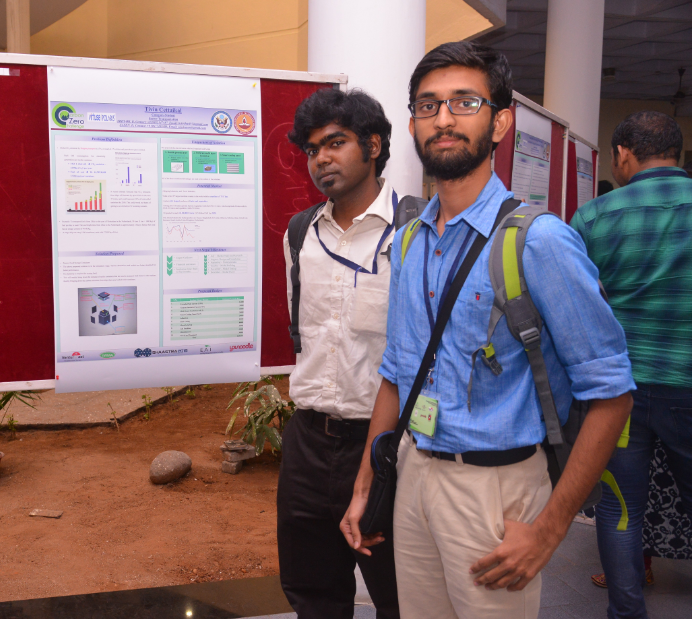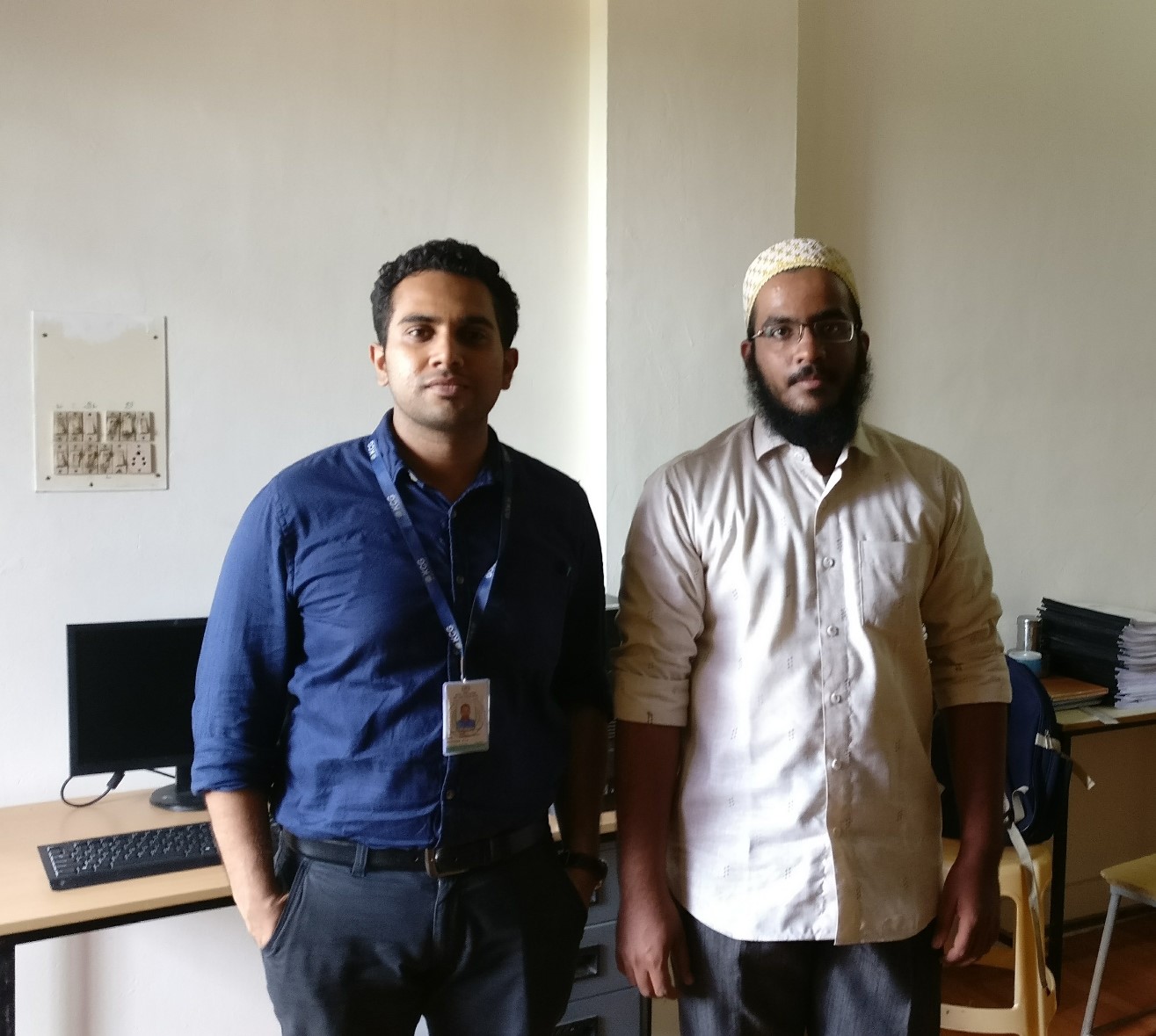Project Highlights
JSP W7, a students’ team from IIT Madras, Chennai chose water and waste management as their sector.
India stands 3rd in global textile export, 75% of which is concentrated in Tirupur
- Effluent discharge in this region poses a long term environmental and biological hazard.
- Current treatment methods
- energy demanding
- Produce high Sludge
- High cost
- High carbon foot print

Who is Behind this Project?
The team is led by Ms. Priyadharshini Mani and the team members are
- Fidal Kumar VT
- Priyadharshini ManI
- Suresh Paul Jones

What is the Project all about?
Single Chambered MFC technology combined with constructed wetland could be an effective solution.
Single Chambered MFC technology combined with constructed wetland
- Energy produced in anode harvested in a capacitor
- Second stage effluent treatment in constructed wetland
MFC Lab prototype using Orange II dye
- >95% Decolorization
- >85 % COD removal
What is the Uniqueness of the Solution?
- Energy positive wastewater treatment technology – net zero OPEX
- Eco-friendly and carbon neutral process
- Typical payback time is 5 years, contributed by: energy savings, reduction in excess sludge quantity, electricity production and tax/
- carbon credits
- Suitable even for small installations, with organic load as low as 100 Kg BOD per day
- A robust process with high tolerance to salinity (5% dissolved solids and even more) sulfate (up to 5’000mg/l) and wide pH range (pH 6.5 to 9.5)
What is the Potential Market?
Our final product will be a system that will degrade the dye and decrease the environmental toxicity, colour and soluble COD of wastewater, coupled with simultaneous bio-electricity generation.
- Target Audience: Textile Industries
- Number of textile units- ~5000
- Average textile effluent : 200 MLD
- Number of treatment plants: ~50
- No of carbon neutral plants: 0
- Plants with strict zero discharge policy: 0
- Initially a small scale treatment plant will be setup for small dyeing units who cannot afford expensive treating facility
- Product installation will be a one time charge with annual maintenance contract (Similar to water filters at home).
Contact Details:
Fidal Kumar – 8056120579
Suresh Paul Jones – 8056082278
Interested to Know more about this team? Send a note to info@czeroc.com









Leave A Comment